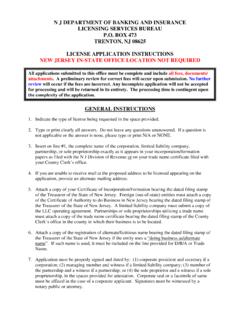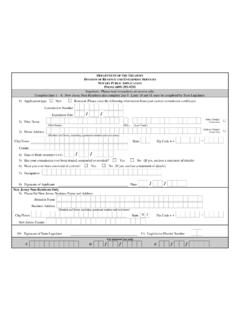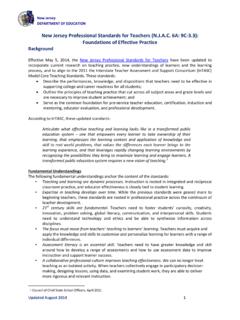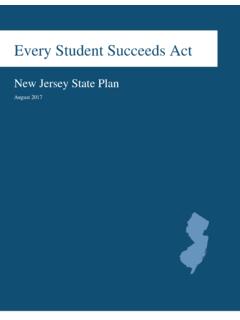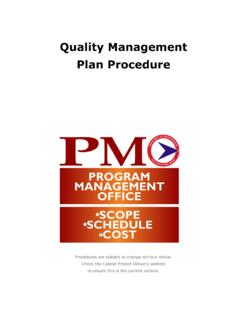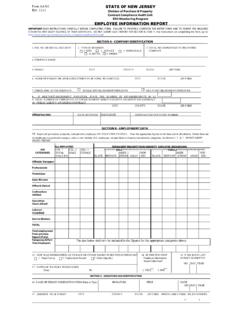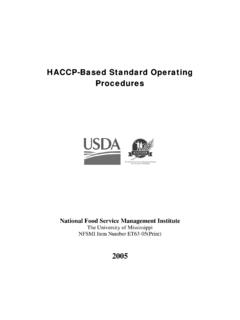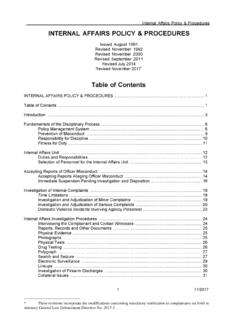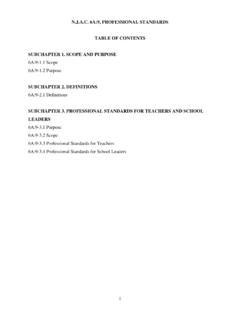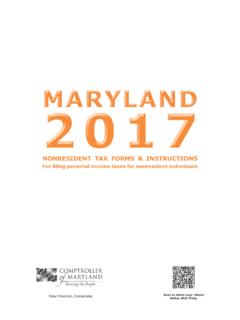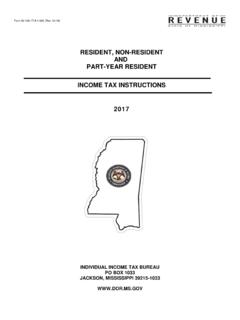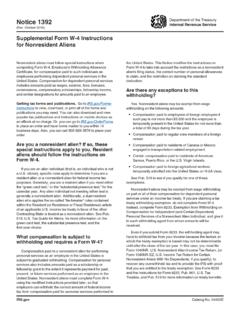Transcription of GIT-6 - Part-Year Residents - New Jersey
1 Rev. 12/17 Tax Topic Bulletin GIT-6 Part-Year Residents Contents Introduction .. 1 Definitions .. 2 Filing Requirements .. 3 Filing Status Considerations .. 7 How Residents and Nonresidents Are Taxed .. 8 Completing a Part-Year resident Return .. 10 Completing a Part-Year nonresident Return .. 19 Example: Part-Year resident / Part-Year nonresident Return Completion .. 25 Important Qualified taxpayers can exclude more pension and other income on the New Jersey return. The increased exclusion amounts are being phased in over a four- year period. For Tax year 2017, the exclusion amounts are up to $40,000 (married/CU couple, filing joint return), $30,000 (single, head of household, or qualifying widow(er)/surviving CU partner), or $20,000 (married/CU partner, filing separate return). Veterans who were honorably discharged or released under honorable circumstances from active duty in the Armed Forces of the United States are eligible for an additional $3,000 exemption.
2 Any reference in this bulletin to a spouse also refers to a spouse who entered into a valid same-sex marriage in another state or foreign nation and a partner in a civil union (CU) recognized under New Jersey law. This document is designed to provide guidance to taxpayers and is accurate as of the date issued. Subsequent changes in tax law or its interpretation may affect the accuracy of this publication. Introduction Part-Year Residents are subject to tax on income received from all sources (both inside and outside New Jersey ) during the portion of the year that they were Residents of the state. Likewise, Part-Year nonresidents are subject to tax on any income received from New Jersey sources while they were nonresidents. This bulletin explains: Part-Year Residents Rev. 12/17 2 Who is a Part-Year resident / Part-Year nonresident for New Jersey Income Tax purposes, as well as who is a full- year resident or nonresident ; What your New Jersey Income Tax responsibilities are as a Part-Year resident / Part-Year nonresident ; How to complete a Part-Year New Jersey Income Tax return; and When a Part-Year resident must file both resident and nonresident Income Tax returns with New Jersey in the same tax year .
3 NOTE: This bulletin covers filing requirements for individual Residents and nonresidents only. The examples illustrate how to prepare Part-Year returns for Tax year 2017. The forms and amounts (tax rates, income exclusions, etc.) shown in the text and examples may not reflect current information for other tax years. For information on estates and trusts, see Tax Topic Bulletin GIT-12, Estates and Trusts, and the instructions for the New Jersey Gross Income Tax Fiduciary Return (Form NJ 1041). Definitions For New Jersey Income Tax purposes, your residency status depends on where you were domiciled and where you maintained a permanent home during the tax year . In general, when you change your domicile to (or from) this state during the year , you are a resident of New Jersey for part of the year ( Part-Year resident ) and a nonresident of New Jersey for part of the year ( Part-Year nonresident ).
4 Your move is generally considered a change of residency status ( resident to nonresident or vice versa) if, at the time you moved, you intended to permanently leave one home and establish a new, fixed, and permanent home somewhere else. Full- year resident You were a full- year New Jersey resident if: New Jersey was your domicile for the entire year , and you did not satisfy all three conditions for nonresident status (below); or New Jersey was not your domicile, but you maintained a permanent home in New Jersey for the entire year and you spent more than 183 days in New Jersey . (Members of the Armed Forces stationed in New Jersey and their spouses who are not domiciled in New Jersey are not Residents under this definition.) Full- year nonresident You were a full- year New Jersey nonresident if: New Jersey was not your domicile, and you spent 183 days or less here; or New Jersey was not your domicile, you spent more than 183 days here, but you did not maintain a permanent home here; or Part-Year Residents Rev.
5 12/17 3 New Jersey was your domicile and you met all three of the following conditions for the entire year : 1. You did not maintain a permanent home in New Jersey ; and 2. You did maintain a permanent home outside New Jersey ; and 3. You did not spend more than 30 days in New Jersey . Part-Year resident / Part-Year nonresident If, as a result of a change of your domicile, you met the definition of New Jersey resident or nonresident for only part of the year , you are a resident for part of the year ( Part-Year resident ) and a nonresident for the remainder of that year ( Part-Year nonresident ). Domicile is the place you consider your permanent home the place where you intend to return after a period of absence ( , vacation, business assignment, educational leave). You have only one domicile, although you may have more than one place to live. Your domicile does not change until you move to a new location with the intent to establish your permanent home there and to abandon your New Jersey domicile.
6 Moving to a new location, even for a long time, does not change your domicile if you intend to remain only for a limited time. The Division will consider many factors when determining if New Jersey is your domicile, including your intent, where you register to vote, your driver s license and vehicle registration, where you have family ties, whether your federal tax return lists New Jersey as a home address, location of bank accounts, whether you claimed a Homestead Benefit, etc. You can have only one domicile at a time. The burden of proof is on the person asserting a change of domicile to show that the necessary intention existed to abandon his or her domicile in one location and to establish a fixed and permanent home in another. A permanent home is a residence (a building or structure where a person can live) that you maintain permanently as your household, whether you own it or not.
7 It usually includes a residence your spouse owns or leases. Your home, whether inside or outside New Jersey , is not permanent if you maintain it only during a temporary or limited period of time, no matter how long, for the accomplishment of a particular purpose ( , temporary job assignment). Likewise, a home used only for vacations is not a permanent home. If New Jersey is your domicile, you are considered a resident for New Jersey tax purposes unless you meet all three conditions for nonresident status. (See Full- year nonresident .) If New Jersey is not your domicile, you are only considered a New Jersey resident if you maintain a permanent home and spend more than 183 days here. Filing Requirements Your filing status and gross income determine whether you have to file a New Jersey Income Tax return. Age is not a factor in determining whether you must file.
8 Even minors (including students) and senior citizens must file if they meet the income filing requirements. Part-Year Residents Rev. 12/17 4 To find out whether or not you are required to file a New Jersey Income Tax return, use the Who Must File a New Jersey Income Tax Return chart in either the resident (Form NJ 1040) or nonresident (Form NJ 1040NR) return booklet or see Who Must File on our website. Time Period Covered by Return (Full- year or Part-Year ) The period covered by your return will be 12 months (full- year return) or less than 12 months ( Part-Year return). Most taxpayers use a calendar year (January 1 December 31) to record their income. Fiscal year filers use a different period ( , July June). This bulletin assumes that you are a calendar year filer. New Jersey has two personal Income Tax returns for individuals: Form NJ 1040 for Residents and Form NJ 1040NR for nonresidents.
9 New Jersey does not have separate tax returns for Part-Year Residents or Part-Year nonresidents. You must use either Form NJ 1040 or Form NJ 1040NR (or both), depending on your residency status during the year , and show the income you received during the period of time covered by the return. Part-Year Residents use the same form as full- year Residents (Form NJ 1040) and indicate the period of their New Jersey residency above Line 1. The return should show only the income received during that period. Likewise, Part-Year nonresidents use the same form as full- year nonresidents (Form NJ 1040NR) and indicate above Line 1 the period of time they were New Jersey Residents . If you file a Part-Year nonresident return, you also will file a Part-Year resident return, unless you had no income during the part of the year you were a resident . You must allocate your income between the resident and nonresident returns as appropriate.
10 That is, report the income you received during the time you were a resident on your Part-Year resident return, and report the income you received during the part of the year you were a nonresident on your Part-Year nonresident return. Examples 1. Emilia Villanueva was a New Jersey resident from January 1 through December 31. She files a full- year resident return showing the income she received during the 12-month period January December. 2. Kosuke and Yui Watanabe were New Jersey Residents from May 1 to December 31. They must file a Part-Year resident return and report the income they received during their period of residency (May December). NOTE: If they had income from New Jersey sources between January 1 and April 30, the period when their residency status was nonresident , they must file a New Jersey Part-Year nonresident return too.
